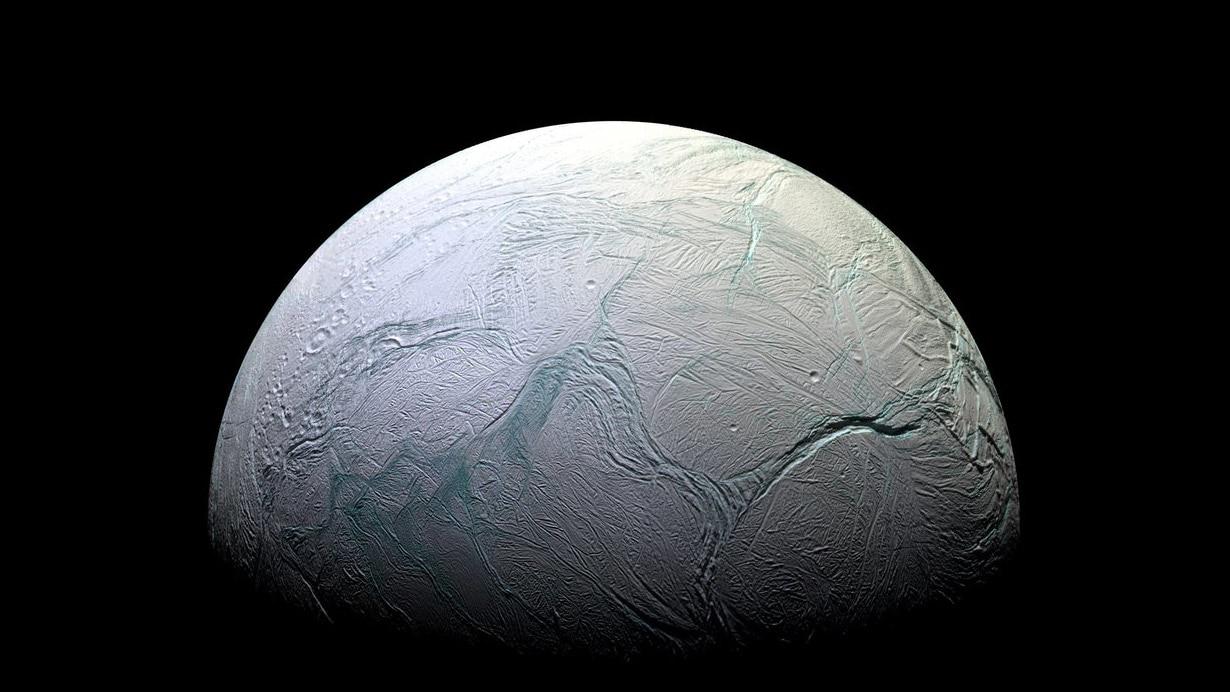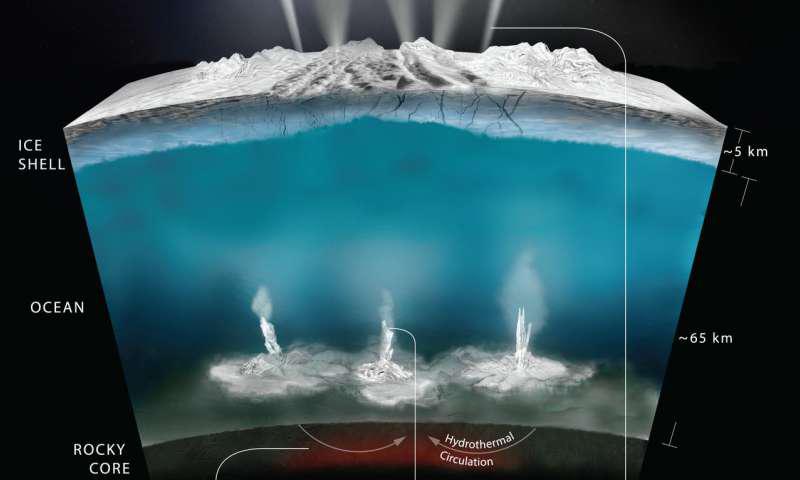A team of researchers from the Massachusetts Institute of Technology has created a model of the salinity of the subsurface ocean of Enceladus. It showed that the amount of salt in it can be beneficial for maintaining life. An article with the results of the study was published in the journal Science Advances.

Now we know that under the surfaces of many icy moons of giant planets (including Europa, Enceladus, Ganymede) vast subsurface oceans are hiding. The water in them does not freeze due to tidal interactions. According to many scientists, these oceans are the most favorable place to search for life in the Solar System. They have an energy source, liquid water, and various chemicals are dissolved in them that living organisms could use for their sustenance.
However, there is another important factor determining the potential viability of the ocean: its salinity. Too much, or vice versa, too little salt can make the occurrence of biological species impossible.
Researchers from the Massachusetts Institute of Technology decided to evaluate the salinity of the Enceladus Ocean. For this, they resorted to the help of computer modeling. It revealed a correlation between salinity and ice thickness at the poles: the more salt is dissolved in water, the thicker the ice should be.

Next, the researchers turned to the Cassini mission archive. Analysis of the data collected by the device showed that the thickness of Enceladus’ ice crust over its poles is less than over the equator. Within the framework of the model, this corresponds to about 30 grams of salt per kilogram of water. For comparison, Earth’s oceans contain 35 grams of salt per kilogram of water. As a result, scientists have come to the conclusion that the salinity level of the Enceladus ocean may be quite favorable for supporting life.
Recall that the project of the Enceladus ocean exploration mission took one of the top positions in the recently published decade review in the field of planetary science.
According to https://phys.org
Follow us on Twitter to get the most interesting space news in time
https://twitter.com/ust_magazine
